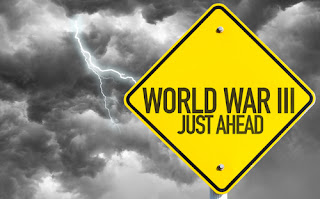“A Revolution Not Made But Prevented”
by Brian Maher
"Yesterday we plumbed the origins of the French Revolution. Today we contrast the 1789 French Revolution with the 1776 American Revolution. How did they differ? And does the American Revolution even merit the moniker “revolution?” These are the questions we tackle today…
Each revolution undid a king. The French revolutionaries yanked old Louis XVI from his throne at Versailles. They later introduced him to Monsieur Guillotine’s famous toy. An ocean spared George III the blade or the noose, it is true. The American colonists nonetheless struck the trans-Atlantic chains that had bound them to monarchy. Yet each revolution bubbled from different aspirations, different objectives.
Was the American Revolution Really a Revolution? Before proceeding, a note: Today we paint in bright colors, with a brush that is necessarily wide. That is, we omit much of the subtlety, much of the shade and shadow of the full historical portrait. Yet here is the overall view: The French revolutionists were out for the Ancien Régime that sat so heavily upon them. We refer here to the old “throne and altar” sociopolitical system of the Bourbon kings. The American revolutionists - meantime - were out to reclaim the ancient rights of Englishmen. It was these rights that George III was molesting… in the revolutionists’ take.
The American revolutionists were not out for revolution, that is. They instead were after a sort of reset as a man resets an erring clock or a wayward thermostat. They did not seek change, that is — but to remain largely the same. Less a revolution than an anti-revolution… we might properly label the thing a revolt.
A child may revolt against parental sovereignty. But is he a revolutionary? Enlightenment statesman Edmund Burke labeled England’s Glorious Revolution of 1688–89 “a revolution not made but prevented.” The same may be said - the same has been said - of the American Revolution. It was in many respects a revolution not made but a revolution prevented. Few ideological stars dazzled them, few ideological sugar plums waltzed within their skulls. They were instead grounded in the good, hard earth - and history.
Historian Clinton Rossiter: "However radical the principles of the Revolution may have seemed to the rest of the world, in the minds of the colonists they were thoroughly preservative and respectful of the past… The political theory of the American Revolution, in contrast to that of the French Revolution, was not a theory designed to make the world over."
Adds historian and political theorist Russell Kirk: "For novel abstract theories of human nature and society, most of the men who subscribed to the Declaration and the Constitution had no relish."
You Need Form in Order to Reform: The American revolutionists pursued reform, it is true. Yet reform has no existence without preexisting form. The form is first. Reform chisels it, sands it, paints it, renews it. Reform does not wreck it. It is true to the underlying form. The American colonists had their preexisting form: their British cultural and political heritage. They clung to the Magna Carta and the ancient rights of Englishmen. They modified, updated and molded the existing form into a new American shape. That is, they kept the old and good. They cut away the old and diseased. They reformed.
The French Revolution: The French revolutionists did not reform. They brought no chisels with them, no sandpaper, no paintbrushes. They instead seized axes, hacksaws, sledgehammers, wrecking balls… and proceeded with delirious abandon. All prior social, cultural, religious and political forms they razed, all bridges to the past they dynamited. No form remained to reform.
The French Revolution, in contrast to the American Revolution, sizzled and crackled with ideology. It looked to build society anew - from root to branch, from cellar to attic. God Himself was chased out of France, deported, banished, exiled. Revolutionists sat “reason” down in His vacated throne. Savagery, barbarism and slaughter on the wholesale followed.
The revolutionists threw aside their “political servitude,” argued Burke - but at the price of their souls. That is because they likewise threw aside the “yoke of laws and morals” that had bound them to Christian virtue. They deformed society… rather than reforming society. From one summary of Burke’s 1790 "Reflections on the Revolution in France": The French Revolution... was tending towards anarchy rather than reformation. Burke valued tradition and the structures that had built up over time rather than the shattering of state, culture and religion that had taken place in France.
These French revolutionists had no past, as stated. They had only a future. Here we speak not metaphorically but literally. Time itself was under new management.
Redrawing Time: In 1792, French revolutionists emptied the existing calendar into the wastebasket. They tacked up a new calendar… beginning at “Year One.” All 12 months were rechristened, primarily after the rhythms of nature. The months themselves were broken into three weeks, each consisting of 10 days. Each day - in turn - was reduced to 10 hours under a decimal system. One new hour counted 144 miniatures or 2.4 times the old hour.
Churches, meantime, were reconfigured as “temples of reason.” All traces of religion and the Church were cleared out, all holy days stricken out. Libertarian writer, Mr. Lew Rockwell: "Streets named after saints were given new names, and statues of saints were actually guillotined... The calendar itself, rich with religious feasts, was replaced by a more “rational” calendar with 30 days per month, divided into three 10-day weeks, thereby doing away with Sunday. The remaining five days of the year were devoted to secular observances: celebrations of labor, opinion, genius, virtue and rewards… People were sentenced to death for owning a Rosary, giving shelter to a priest or indeed refusing to abjure the priesthood."
Now you have the flavor of it. Imagine it - a lunatic nation dynamiting its past foundations - and beginning anew at Year One. How does a man know his age… or celebrate his birthday?
The Democracy of the Dead: The revolutionists, argued Burke, lowered their axes upon what Lincoln later labeled the “chords of memory.” These are the chords of memory that link past to present, past and present to future. In this democracy of the dead, the dead are granted a vote. Yay, nay or present… the dead have a say in a nation’s doings.
The French revolutionaries stripped the dead of their vote. They replaced it with the tyranny of the living. And the unborn would never learn the wisdom of the ancients. In Burke’s telling: "As the ends of such a partnership cannot be obtained in many generations, it becomes a partnership not only between those who are living, but between those who are living, those who are dead and those who are to be born."
The French revolutionists tore the contract. They may have struck the past’s shackles from their wrists. But they merely exchanged old shackles for new shackles…"


.jpeg)



















